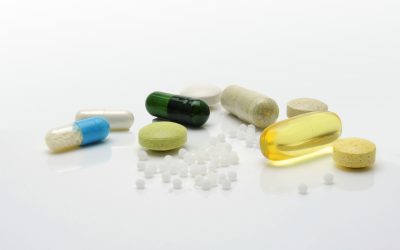Period Basics: What Is Normal?
Period Basics: What Do You Know?
Ladies, we get our periods every month, yet SO many of us know SO little about it! Despite experiencing this necessary process each month, few of us understand period basics. In practice, I’m always surprised at the misinformation surrounding our periods. What is normal? How long should it last for? How heavy should it be? How frequently should I get my period? These may seem like basic questions, but you may be surprised to learn many of the symptoms we regularly experience aren’t necessarily normal or healthy at all. Our period, as annoying as it may be, is one of the best clues we ladies have to understand where our health lies. Any imbalance can point to specific processes that are going wrong in our bodies every day! Moreover, any imbalance can significantly throw off our fertility. So without further ado, here’s the low down on period basics and what is considered normal.
Period Basics #1: Period Length
Period length can vary quite a bit between women; however, a normal duration is accepted as anywhere from 3-6 days. If your period duration is regularly less than 2 days, or regularly more than 7 days, you have sadly fallen outside of the normal range. Many factors play into period length but an important one is optimal levels of estrogen. Estrogen is required to build up our endometrial lining and prepare it for pregnancy. If we aren’t producing enough estrogen, our endometrium will be thinner which will lead to both shorter and less heavy periods. Conversely, we can have too much estrogen which will cause a thicker endometrial lining to form, leading to both longer and heavier periods. There are many causes of estrogen imbalance, so it’s important you do some investigative work with a healthcare practitioner to learn more! As well, there are many other reasons for short or long periods that do not necessarily have to do with estrogen. If you fall outside the normal ranges, do yourself a favor and look into possible reasons why!
Period Basics #2: Flow Volume
Flow volume refers to the amount of blood we lose during a period. This is the symptom women tend to misunderstand the most! That’s because it’s hard to quantify how much bleeding occurs in a month. A normal flow volume is 30-70mL per period. So what does this mean? A normal size tampon holds 5mL of blood when completely saturated. That works out to 6-14 fully used tampons per period. Any more than this is an indication of too heavy a period. To help you quantify your flow, the Diva Cup holds exactly 30mL, and a normal size pad can hold 5-15mL. Abnormal flow is considered anything less than 20mL, or anything greater than 80mL. Basically, you shouldn’t be able to get by wearing only a panty liner, and you shouldn’t be using more than 14 tampons per cycle. As we discussed above, estrogen is highly influential in this process and can help explain why we may have too light or too heavy of a flow. Also, although we all would love a light period, this is not a normal symptom! So whether you experience too heavy or too light of a flow, make sure you get this checked out!
Period Basics #3: Cycle Length
So now that we have an idea of period length and quantity, how frequently should you be getting your period? Cycle length refers to how many days in your entire cycle. Basically, the cycle length is the number of days from day 1 of your period to day 1 of your subsequent period. A normal cycle length is anywhere from 25-35 days; therefore you should be getting your period every 25-35 days. An abnormal cycle length is anything less than 24 days, or anything greater than 35 days. There are a number of reasons for abnormal cycle length, but it almost always has to do with improper ovulation and some form of hormonal imbalance. A short cycle may indicate estrogen deficiency, progesterone deficiency, premature ovarian failure or perimenopause to name a few. A long cycle is often a sign that ovulation is not occurring altogether. There are MANY reasons for skipping ovulation, and it is very important to get this looked at since it directly impacts your fertility. I also would like to address that if you are not getting your period at all, this is not healthy and normal!
Period Basics #4: Appearance
Protein is essentially the building block of life so it’s no wonder that increasing protein is often suggested when trying to optimize fertility! However, a mistake I see ALL the time is increasing protein by increasing the consumption of animal products. Although animal products are an excellent source of protein, they have been linked to a number of health concerns and cause inflammation when consumed in too large a quantity1. Opt for vegetarian protein DAILY and animal protein 3 times per week. Excellent sources of vegetarian protein include soy, legumes, nuts, seeds, and quinoa just to name a few. That said, for men, it’s best to avoid soy as your source of vegetarian protein. Soy is an estrogenic plant that could theoretically interfere with hormone and sperm production; choose another source to be on the safe side2!
A Word on Spotting
Now one thing we have not yet addressed, but get asked about ALL the time, is spotting. Spotting before, between, or after your period is typically not considered normal. There are some instances where spotting is a normal and healthy finding. This includes ovulation bleeding and early pregnancy. However, there are other abnormal causes which may point to hormonal imbalance. This can be any combination of low or high progesterone, and low levels of estrogen. Unfortunately, if you are spotting there is no way to know if it’s healthy or not unless you visit a healthcare practitioner. To learn more, check out our post on spotting!
Need Help With Your Period?
There is A LOT of healthy variation when it comes to our periods. Our periods are such an important and essential process that we go through each month, and are integral to optimizing our health! We covered a lot, and there is much more that could be discussed. If you have any questions or concerns, never hesitate to reach out and ask! Our periods are so closely tied to our health and our fertility; it’s important to get answers to know where you stand! If your periods are interfering with your optimal fertility, I’m here to help! Our periods are not something to be dreaded, but something to be celebrated!
With love and in health,
Priya
References
I want to help you get there. The key to your fertility lies within you.
Let's Awaken it!
More Reading
Naturopathic Medicine in Fertility
Whether you are just starting to try to get pregnant, struggling with getting pregnant or suffering from recurrent miscarriages, a fertility naturopathic doctor can help you along your fertility journey. Naturopathic doctors are trained healthcare professionals with...
The Role of Melatonin in Fertility
Most of us have heard about melatonin in the context of sleep, as a supplement that can impact our circadian rhythm. However, this hormone also plays an important role in female fertility. What is Melatonin? Melatonin is a hormone made by the pineal gland in...
Simple Tips to Improve Your Chances of Conceiving
It’s easy to get caught up in the minor details of what we could be doing better when trying to get pregnant. This can lead to constant thoughts around the effects that our daily activities have on our chances. This self-criticism can feel overwhelming and...




Share This
Share this post with your friends!